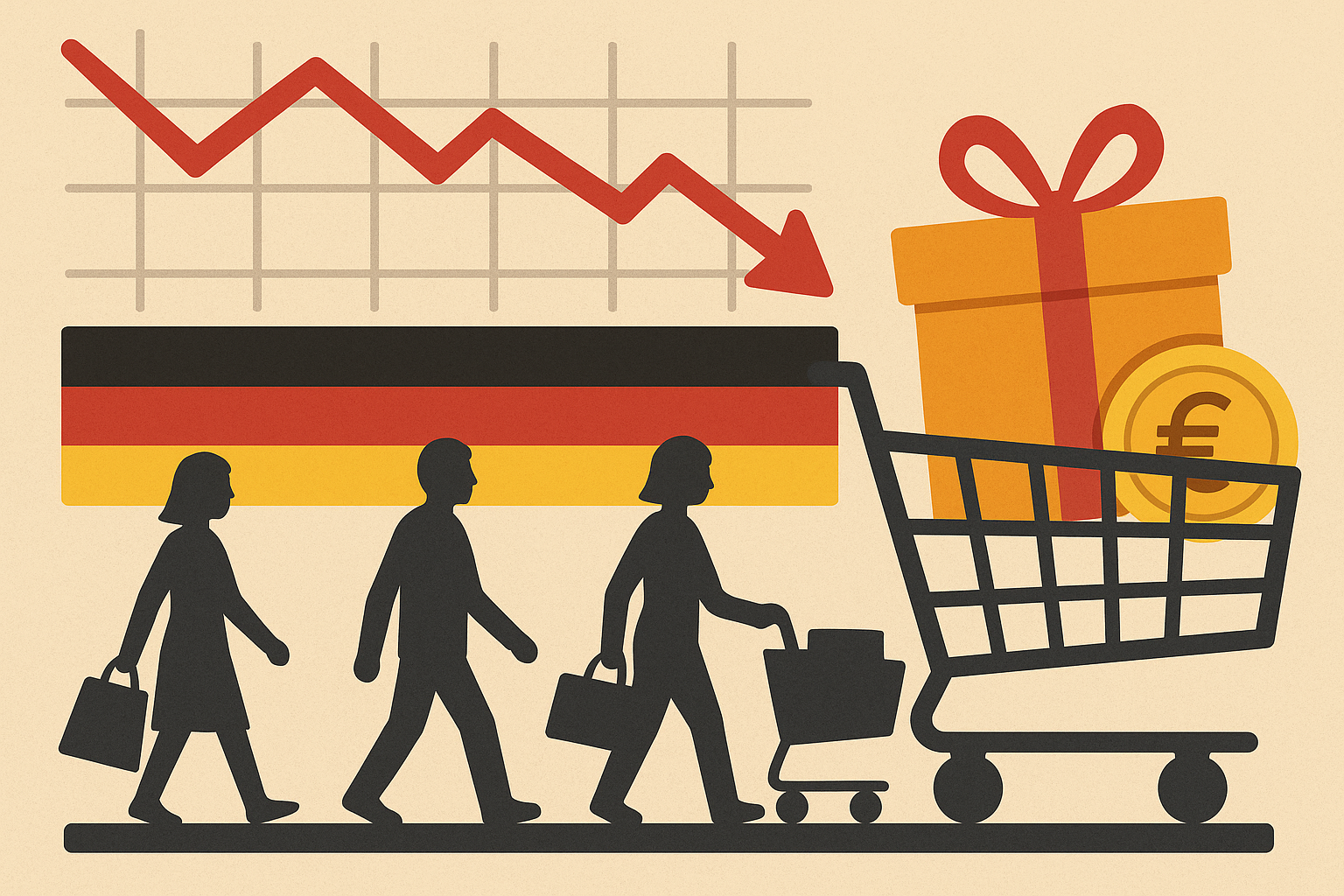Germany is moving into December with a slight lift in consumer sentiment as households prepare for the holiday season.
A new survey shows that people are more willing to spend money than in previous months, giving retailers hope for steady year end activity.
The overall improvement remains limited, however, because income expectations are weakening and continue to hold back a stronger recovery.
The report offers a detailed picture of how households are making decisions at a time when the wider economy is growing very slowly.
The findings cover the period from 30 October to 10 November 2025.
Buying habits change
The latest consumer sentiment index from GfK and the Nuremberg Institute for Market Decisions shows a rise to minus 23.2 points for December from minus 24.1 points in the previous month.
This movement matches what analysts had forecast.
The shift is mainly driven by a clear increase in the willingness to buy, which climbed by 3.3 points for a second month in a row.
This indicator has now returned to the same level seen a year earlier at minus 6.0 points.
A decline of 2.1 points in readiness to save also played a role in lifting the headline number.
These trends suggest that households are choosing to prioritise spending on seasonal items even if long-term financial confidence remains weak.
Income expectations soften
While households show more readiness to spend, the survey also records a drop in income expectations.
The sub-index for income expectations fell by nearly 2 points on the month to reach minus 1.1 points.
Even with this decline, the value is still 2.5 points higher than it was at the same time last year.
The figures indicate that households expect their finances to stay under pressure in the coming year, which may limit any broad revival in private consumption.
The survey explains that when this indicator is below zero, it signals a year-on-year decrease in private consumption, and a one-point change in the index corresponds to a 0.1% shift in annual consumption.
Economic view stays cautious
The economic expectations index also reflects a cautious mood.
The measure tracks how people judge the economic situation over the next 12 months and shows a drop of nearly 2 points from the previous month, landing at minus 1.1 points.
Despite the decline, the value remains above last year’s level by 2.5 points. The wider backdrop is one of slow national growth. Germany is expected to expand by only 0.2% in 2025 after two years of contraction.
This slow pace is linked to the time needed for Chancellor Friedrich Merz’s spending plans to support activity.
With this environment still unfolding, the survey’s data suggests that households are waiting for clearer signs of improvement before changing spending patterns more decisively.
Indicators explained
The survey offers guidance on how to interpret the figures. Any reading above zero suggests growth in private consumption compared with the same month a year earlier.
Values below zero signal a fall.
The willingness to buy measure reflects the balance of answers to the question about whether it is a good moment to buy major items.
Income expectations capture how people think their household finances will change in the next 12 months.
The economic expectations measure shows how respondents view the general economic situation in the year ahead.
Together, these indicators map out how households plan spending, saving, and major purchases as the holiday season approaches.
The post German consumer sentiment trends shift as shoppers plan cautious holiday spending appeared first on Invezz

